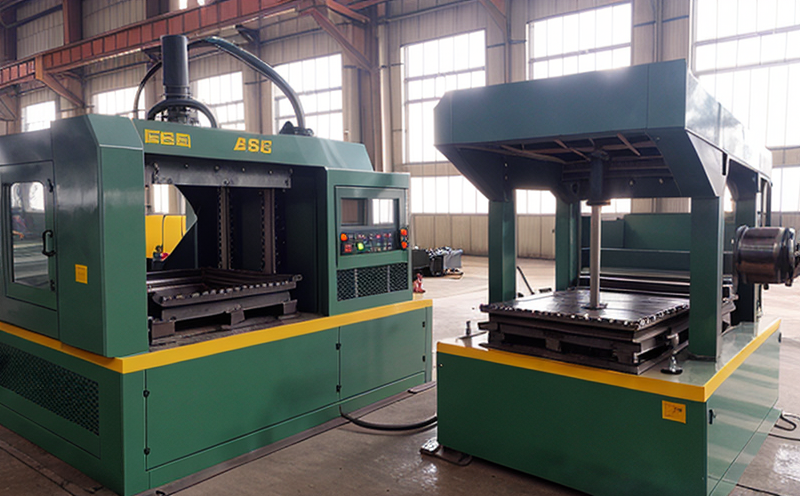JIS Z2248 Hardness Testing of Forged Products
The JIS Z2248 hardness testing standard is a critical component in ensuring product quality and compliance for manufacturers involved in forging processes. This method ensures that the hardness of forged products meets specified requirements, which are essential for maintaining structural integrity and performance specifications.
Forging is a metalworking process where metal stock is shaped by localized plastic deformation under high pressure and temperature. The mechanical properties of the material, particularly hardness, play a crucial role in determining the suitability of a forged part for its intended application. Hardness testing measures the resistance of a material to indentation caused by an external force.
The JIS Z2248 method employs various types of hardness testers and scales depending on the size and shape of the forging sample. Commonly used scales include Rockwell, Brinell, and Vickers. The choice of scale depends on the specific requirements set forth by the standard.
Hardness testing is performed according to a defined procedure that includes specimen preparation, positioning, and indentation with calibrated indenters under controlled loads. Specimen preparation involves cleaning the surface of the forging sample before placing it in contact with the indenter. The force applied during indentation must be consistent and accurately measured.
The JIS Z2248 standard specifies acceptance criteria based on the hardness value obtained from multiple test points across different sections of the forged product. These acceptance limits ensure that all parts of the forging meet the required mechanical properties, thus enhancing reliability and safety in industrial applications.
Compliance with this standard is essential for manufacturers to meet quality assurance standards and international requirements. Non-compliance can lead to substandard products, potential safety hazards, and costly recalls or rework processes. By adhering to JIS Z2248 hardness testing procedures, companies ensure their forgings are consistently reliable and robust.
- Rockwell scale: Used for carbon steel forgings
- Brinell scale: Suitable for larger forged parts
- Vickers scale: Ideal for small or thin samples
Benefits
The JIS Z2248 hardness testing method offers several advantages to industrial manufacturers and processors:
- Ensures compliance with international standards, which is crucial for export markets.
- Improves product quality by eliminating defective forgings early in the production process.
- Promotes consistency across batches of forgings produced under similar conditions.
- Reduces the risk of structural failures due to insufficient material hardness.
Eurolab Advantages
At Eurolab, we pride ourselves on delivering accurate and reliable JIS Z2248 hardness testing services. Our team of experts utilizes state-of-the-art equipment to ensure precision in every test:
- We employ calibrated hardness testers that adhere strictly to the JIS Z2248 specifications.
- Our laboratories are equipped with advanced software for data analysis and reporting.
- Our technicians undergo continuous training to stay updated on the latest testing methodologies.





